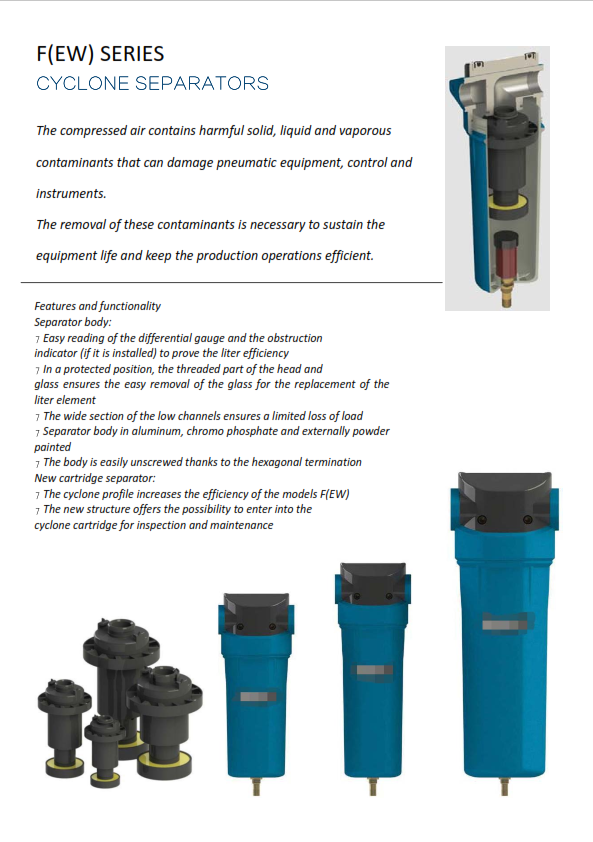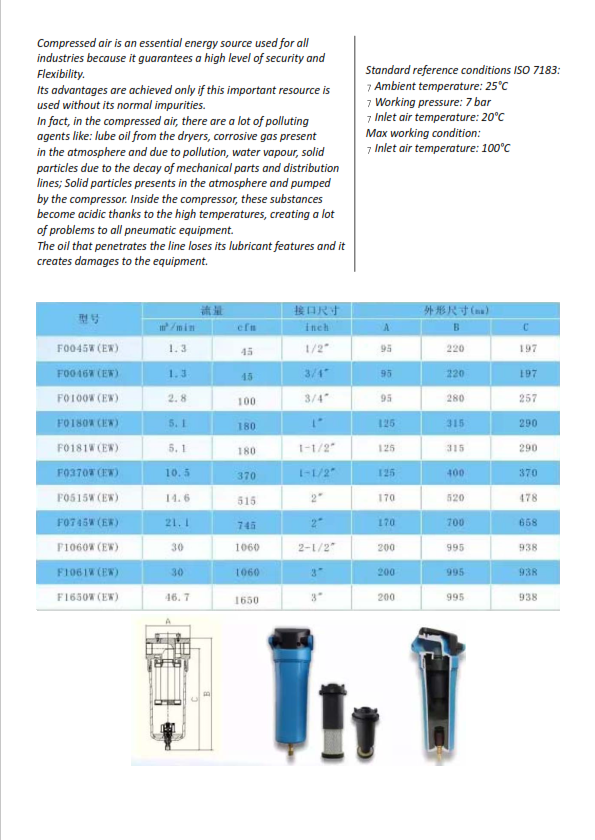
Compressed air always contains water vapor and other moisture that is harmful to your tools, pipes and equipment. They can lead to corrosion, control failures, and ultimately equipment failure. In-line air dryers remove water vapor and moisture content from compressed air before it reaches moisture-sensitive components and processes.
Each of these compressed air dryer types has a principle of operation. However, the general function of each is to remove most or all of the vapor content from the compressed air. The dew point of the generated compressed air is used as a measure of how dry the air is: the lower the dew point, the lower the moisture content, and vice versa.
The use of in-line air dryers has its benefits. They include
Increasing the service life of pipes, tools and equipment
Prevents equipment corrosion
Effective removal of particles, water vapor and other moisture from compressed air
Save on equipment maintenance costs
The best compressed air dryers are often used in the following industrial and commercial applications:
Materials Manufacturing
Material manufacturing operations such as pneumatic equipment power, lathe chucking operations, pressure cleaning of mechanical parts, and part cooling often require dry compressed air to ensure and maintain an optimized manufacturing environment.
Oil and Gas Recovery
Many compressed air dryer types have applications in the oil and gas industry. Some of these include
Driving pneumatic systems
High pressure enhanced recovery
Oil and gas transportation
Drilling rig control operations
Most of these applications become hazardous in moisture-filled compressed air. Therefore, it is relevant for operators to effectively remove these water vapor levels to ensure safe operation.
Pharmacology
Compressed air that is free of water vapor and moisture is critical to the operations of the pharmaceutical industry. Various processes such as tablet making, fermentation, instrument air-drying, and drug drying and packaging require dry compressed air. In addition, the air must be free of moisture to prevent contamination. Therefore, compressed air quality testing is also common in the pharmaceutical industry.
Fabric Synthesis
Textile Production Industries require large amounts of compressed air for blow guns, air knives, pneumatic systems to lift and cool equipment components. Since moisture can damage fabrics, dry compressed air ensures their optimal synthesis.
Mold and mildew prevention
Mold formation in the workplace can lead to a variety of health hazards and safety regulation violations. In-line compressed air dryer systems can easily solve this problem by keeping ambient humidity within mold growth limit levels.
Food and Beverage Production
The production, packaging and preservation of high quality food and beverages requires dry compressed air. Since air is a major contaminant in food and beverages, proper compressed air drying ensures that they are safe for consumption.
Residential use
Residential heat pumps, spin dryers, condensing dryers, hair dryers and clothes dryers also apply air pressure dryers. However, most home applications are usually related to material drying or incorporated into the type of equipment that requires air drying.

